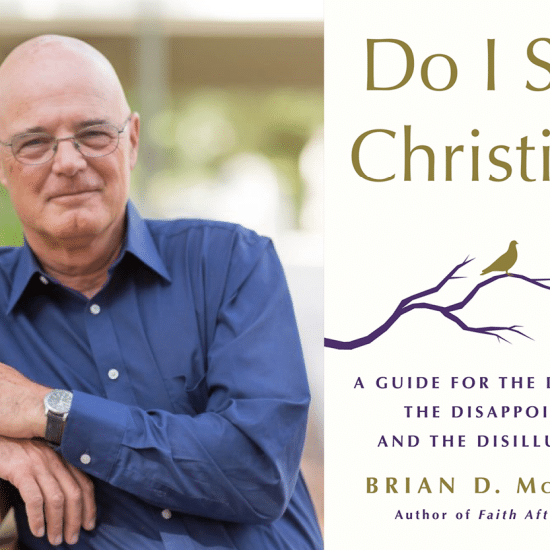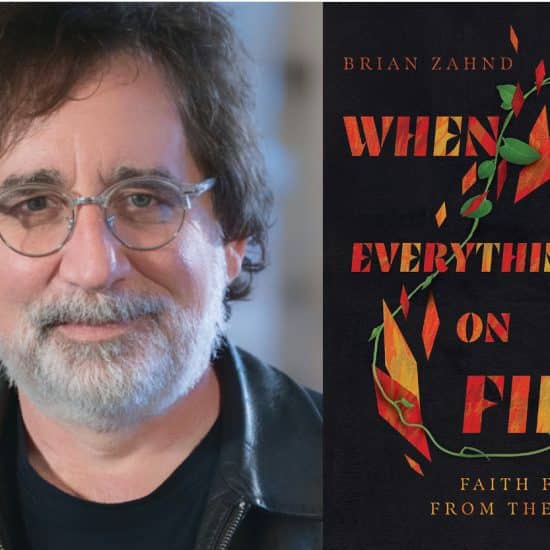
I have a bias that causes me to gravitate towards smart Christians. When someone accomplished in business, science, or other areas of intellectual achievement professes faith in Jesus Christ, I take notice. There’s comfort in realizing someone with more mental horsepower than me believes what I do. “If they think this is all true,” I reason, “then my own convictions aren’t so crazy.”

Beau Underwood
Beyond this element of solidarity, seeking out thoughtful fellow believers allows me to glean wisdom from them about the life of faith. They know things that I’m eager to learn.
So, some version of “what makes you believe in and follow Jesus?” is one of my favorite questions to ask such people. Earlier this month, I interviewed by email a theologian and scholar who has recently become one of my favorite writers, Frederick Christian Bauerschmidt. I asked a version of this question by inquiring of him, “Why do you stake your life on the love that is God?”
His response has stuck with me. I’ve been churning it over in my head ever since he wrote it down.
“I sometimes ask myself why I am a Christian,” he said. “At the heart of it all is a conviction that the love that is revealed in the life, death, and resurrection of Jesus of Nazareth is what holds the key to the mystery of existence. … I have tried to live my life in such a way that, if this conviction is false, them my life is absurd, and probably deserves widespread mockery.”
I cannot let go of this authenticity, of his claim that he seeks a path of discipleship so genuine that if the Christian faith proved unfounded then his life would be absurd and property mocked. Now, I do not know Dr. Bauerschmidt particularly well (though, in our email exchanges he has insisted I call him “Fritz”), but I have no reason to doubt his earnestness. While he would likely deny being an exemplar, I find myself wanting to be able to describe myself in the same way.
Am I willing to follow Jesus so fully and radically — to invest myself into knowing and trusting him so completely — that everything else in my life hinges on that devotion? Can I commit myself to being a disciple whose thoughts, feelings, and actions can only be explained by a steadfast confession that “Jesus is Lord!”? If someone looks at me and says, “You’re out of your mind,” I want to be able to say, “It is for God!” (2 Cor. 5:13).

(Priscilla Du Preez/Unsplash)
Yet, I recognize that my quest to bolster confidence in my faith through intellectual respectability works at cross purposes with my desire to live unabashedly for God.
Whether the smartest people in the world (or at least the smartest people I know) are fervent Christians or raging atheists matters little to my own spiritual life. Their arguments and testimonies might prove edifying, but their faith belongs to them; I have the responsibility to work out my own salvation with fear and trembling (within the confines of Christian community, through committed prayer and study, and all the other caveats as to how this is not an individualistic enterprise).
Moreover, how my faith is authentically expressed is heavily determined by the context in which I find myself. There are common threads in the lives of all who call themselves Christian, but the particular ways we follow Jesus depend upon the places we are located, the decisions and opportunities before us, and the talents and struggles particular to each of us. Christ beckons us all to follow but we walk after him in different, unique ways.
So, the question I enjoy posing to others for a response — Why are you a Christian? — requires an answer from me. My life belongs to Jesus because I find his teachings of justice and acts of compassion offer the most compelling vision of what life should be about. While others waste their time on inconsequential things or organize their days around selfish pursuits, he demands we see ourselves as existing for the sake of others. Paradoxically, in denying ourselves, we discover the fullest life imaginable. When I have risked living this out, I have experienced it to be profoundly true.
Then, on the cross I see a heinous act transformed into the most beautiful of moments when Jesus takes his commitment to self-denying love to its most extreme. He is mocked for giving himself away, for turning himself over to God and suffering for humanity. That example stands in stark contrast to the shallow individualism pervading our contemporary culture. In the cross, I see not only the promise of divine salvation but the fullest expression of what it truly means to be human.
Yet, this is neither how Jesus’s story ends nor enough to claim my life. It is the resurrection that follows, the promise that death is not the end and that more is to come, that God is greater than the powers and principalities of this world that leaves me ready to invest all of myself in this adventure with Jesus. Those invested in pursuing fame, fortune, and power in this realm may find my hope in what is yet to come quite silly. If so, that is fine.
Personally, I find lives focused on such fleeting things to be absurd.
Beau Underwood is senior editor & VP for external affairs for Word&Way.






